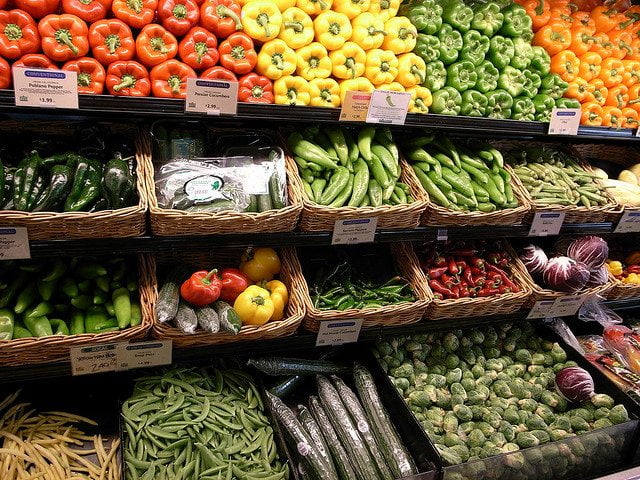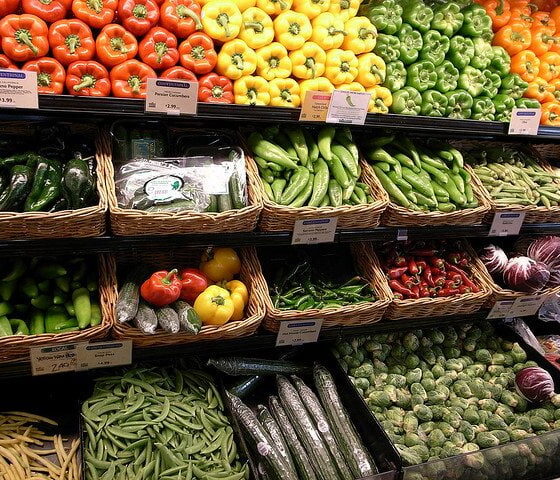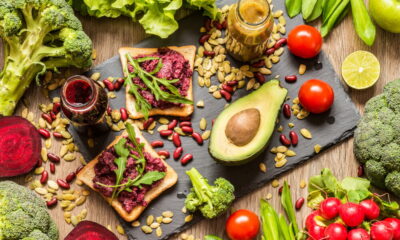There are a lot of ways that you can practice an eco-friendlier lifestyle. One way that you can consider being more environmentally responsible is by becoming a vegan. A group of experts from University of Oxford found that veganism is a great way for environmentalists to help the planet.
January is a great month to practice veganism and start lowering your carbon footprint. A lot of vegans have started referring to this month as Veganuary. However, you can practice veganism throughout the year.
Switching to a plant-based lifestyle can actually be more difficult than you previously anticipated, especially if your diet was originally heavy in meat and dairy. But, now that you’ve conquered the biggest Veganuary yet, you might be thinking about making it a more permanent change in your lifestyle. It can be difficult to keep that momentum going, but trust us, stick with it and it will become second nature.
Here, we’ll go through our top eco-friendly tips to keep yourself going even on the laziest Sundays, helping you stick to a fully vegan diet.
1. Find vegan alternatives to your favourite meals
Whether it’s a family favourite to comfort yourself in the evening, or a fun and enjoyable recipe to get stuck into making, there’s a lot to be said for the restorative qualities of good food. But completely changing your diet can make it difficult to continue eating the things you like, especially if you’ve just switched to veganism from a typical omni diet. This is a great way to lower your carbon footprint with minimal effort.
Fortunately, vegan substitutes have never been more widely available (or better quality) for almost any meal. If Italian was your favourite cuisine, Pasta Evangelists have you covered, with a selection of easy-to-follow vegan pasta recipes to go with their meal kits that offer vegan options on a weekly basis. Or if burgers are more your thing, Honest Burger have made their game-changing plant burger available for customers to make fresh at home. And with more vegan-friendly ingredients now on offer in every major supermarket, it couldn’t be easier to find your own substitutes to cook your favourite meals at home.
2. Follow eco-friendly vegan influencers on social media
Completely changing your diet can eventually cause you to slip into a routine of eating the same foods and meals, which can leave you feeling unmotivated and may even push you to breaking veganism. However, having an endless stream of new content from accounts you follow can keep you inspired to keep going. This is the best way to make a consistent commitment to eco-friendly veganism.
Stay up to date on all the vegan news by following vegan influencers, who post about new product launches, restaurants, and even their favourite recipes. There are plenty of social media groups dedicated to the meat-and-dairy-free lifestyle, where members can share supermarket finds, product reviews, and put any questions about being vegan to the community. This can keep you motivated to keep up your vegan diet, while also inspiring you to try new recipes that you wouldn’t have considered attempting before.
3. Look for a delicious vegan takeaway for lazy meals
Whether you’re too busy to cook or you’re having a bit of a lazy day, everyone feels the temptation to order a takeaway at one time or another. Luckily for you, more and more takeaways around the country are offering plant-based menu items, making it easier than ever to order something to eat. For example, most Chinese restaurants will offer a tofu or vegetable-based dish, which you can order with steamed rice or rice noodles for your meal. Just steer clear of anything served with oyster sauce.
Most pizza chains offer at least one entirely vegan pizza on their menus. Papa John’s, take it one step further and pave the way for vegan-friendly pizza chains with their stuffed crust pizzas as well as a range of vegan-friendly sides and desserts.
4. Ensure you’re getting enough nutrients in your diet
It’s important to carefully consider what you’re eating. Just because something is vegan doesn’t necessarily mean it’s healthy. As veganism becomes more popular, so does the amount of processed food available to customers. In fact, it can be all too easy to slip into a routine of eating nothing but ready meals and heavily processed substitutions. While these are fine to eat in moderation, we would recommend focusing more on whole foods to fill your plate with the nutrients you need.
Whole grains, potatoes, legumes, and quinoa can make up your healthy carbohydrates, and foods like avocado, nuts, seeds, and olive oil are sources of good fats. Your protein intake as a vegan will likely include a range of complete proteins and essential amino acids, as long as you eat plenty of soybeans (tofu, tempeh, and edamame), hemp seeds, chia seeds, and nutritional yeast. These are some of the best sources of complete proteins from plants, as well as being the easiest to get hold of in any supermarket.
There are some deficiencies that are more common amongst people who follow a vegan or vegetarian diet. Iron is typically associated with leafy, green vegetables, but it’s actually more difficult for the body to absorb iron from plant-based sources — known as non-haem iron. Including at least one rich source of iron in every meal, as well as some vitamin C (which aids in absorption), can ensure you get the recommended daily allowance.
Vitamin B12 is another common vitamin deficiency amongst vegans as its only natural sources are animal products like fish, meat, eggs, and dairy. However, there are more fortified foods, such as breakfast cereals and nutritional yeasts, that contain B12 for vegetarian and vegan diets. Many vegans choose to take daily vitamin supplements to ensure they get the recommended amount of nutrients.


 Environment12 months ago
Environment12 months agoAre Polymer Banknotes: an Eco-Friendly Trend or a Groundswell?

 Features11 months ago
Features11 months agoEco-Friendly Cryptocurrencies: Sustainable Investment Choices

 Features12 months ago
Features12 months agoEco-Friendly Crypto Traders Must Find the Right Exchange

 Energy11 months ago
Energy11 months agoThe Growing Role of Solar Panels in Ireland’s Energy Future




























